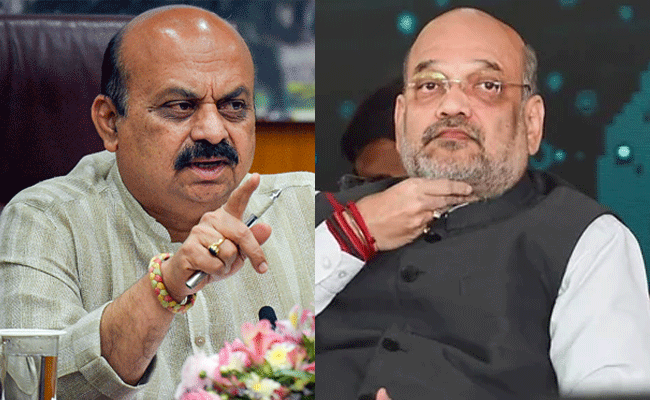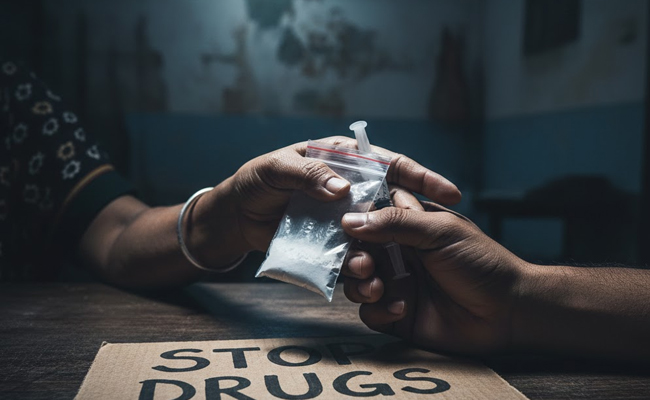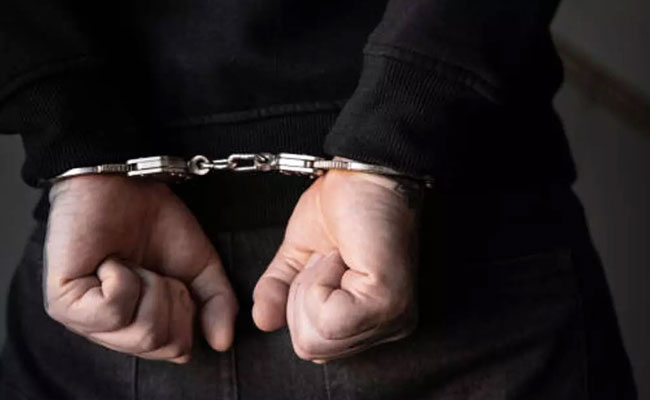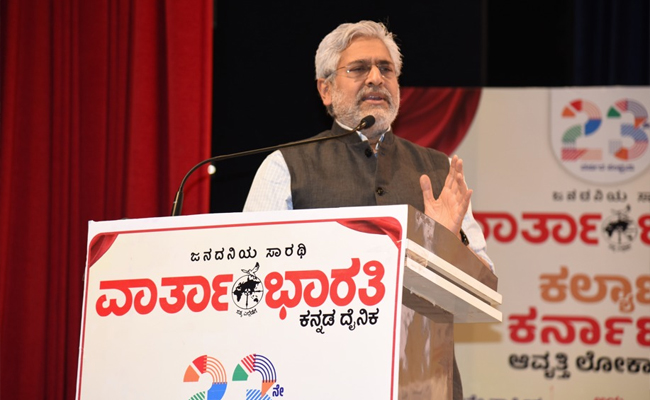Bengaluru (PTI): Karnataka Chief Minister Basavaraj Bommai on Saturday said he has given details about the state's stand and facts regarding the raging border dispute with Maharashtra to Union Home Minister Amit Shah, who is likely to call a meeting of Chief Ministers of both states next week.
He also indicated that the state government is likely to convene an all-party meeting soon to discuss the issue.
The Chief Minister's statement came following a delegation of parliamentarians of the Maharashtra Vikas Aghadi (opposition coalition in Maharashtra) meeting Shah on Friday regarding the border dispute with Karnataka.
"I have asked a delegation of our MPs to meet (Amit Shah) on Monday. I have also spoken to Shah. He said that he will send information and in two to three days he will be calling me and the Maharashtra Chief Minister. Most probably, that meeting will take place on December 14 or 15," Bommai said.
Speaking to reporters here, the Chief Minister said he has already informed Shah about Karnataka's stand and facts regarding the dispute, along with details.
"On Monday, our MPs will be sharing all the details, and as soon as he (Shah) calls, I will also go and reiterate Karnataka's stand before him," he added.
The Chief Minister had last night said that the Maharashtra delegation meeting Shah on the border dispute will not make any difference, and asserted that his government will not make any compromise on the issue.
Noting that Maharashtra has tried this in the past too, he said, "The case is in the Supreme Court. Our legitimate case in the Supreme Court is strong."
Responding to a question on Leader of Opposition in Karnataka Assembly Siddaramaiah demanding that the government convene an all-party meeting to discuss the border dispute, Bommai today said he will be speaking to both Siddaramaiah and JD(S) leader H D Kumaraswamy.
"I spoke to Siddaramaiah yesterday and told him that I will inform him about the further developments. I will speak to both Siddaramaiah and Kumaraswamy," he said.
The border row had intensified earlier this week, with vehicles from either sides being targeted, leaders from both states weighing in, and pro-Kannada and Marathi activists being detained by police amid a tense atmosphere in the border district of Belagavi.
Following this, the Karnataka and Maharashtra Chief Ministers spoke to each other over phone and agreed that there should be peace and law and order should be maintained on both sides.
The border issue dates back to 1957 after the reorganisation of states on linguistic lines. Maharashtra laid claim to Belagavi, which was part of the erstwhile Bombay Presidency, as it has a sizeable Marathi-speaking population. It also laid claim to 814 Marathi-speaking villages which are currently part of Karnataka.
Karnataka maintains the demarcation done on linguistic lines as per the States Reorganisation Act and the 1967 Mahajan Commission Report as final.
And, as an assertion that Belagavi is an integral part of the state, Karnataka has built the Suvarna Vidhana Soudha, modelled on the Vidhana Soudha, the seat of legislature in Bengaluru, and a legislature session is held there annually.
Let the Truth be known. If you read VB and like VB, please be a VB Supporter and Help us deliver the Truth to one and all.
Srinagar (PTI): Property worth Rs 1 crore belonging to a notorious drug peddler was on Saturday attached in Jammu and Kashmir's Srinagar, police said.
A double-storey house on eight marlas of land situated at Wantpora Eidgah, belonging to Basit Bilal Dar, a notorious drug peddler, valued at approximately Rs 1 crore, a police spokesperson said.
He said Dar is involved in two cases registered under various sections of the NDPS Act.
During investigation, it was established that the accused had acquired the said property through illicit proceeds generated from drug trafficking activities, the spokesperson said.
Consequently, the property was attached under the provisions of the NDPS Act. The attachment proceedings were conducted in the presence of the two independent witnesses, strictly in accordance with the prescribed legal procedures, he said.
As per the attachment order, the owner has been restrained from selling, leasing, transferring, altering, or creating any third-party interest in the property till further orders, the spokesperson added.





